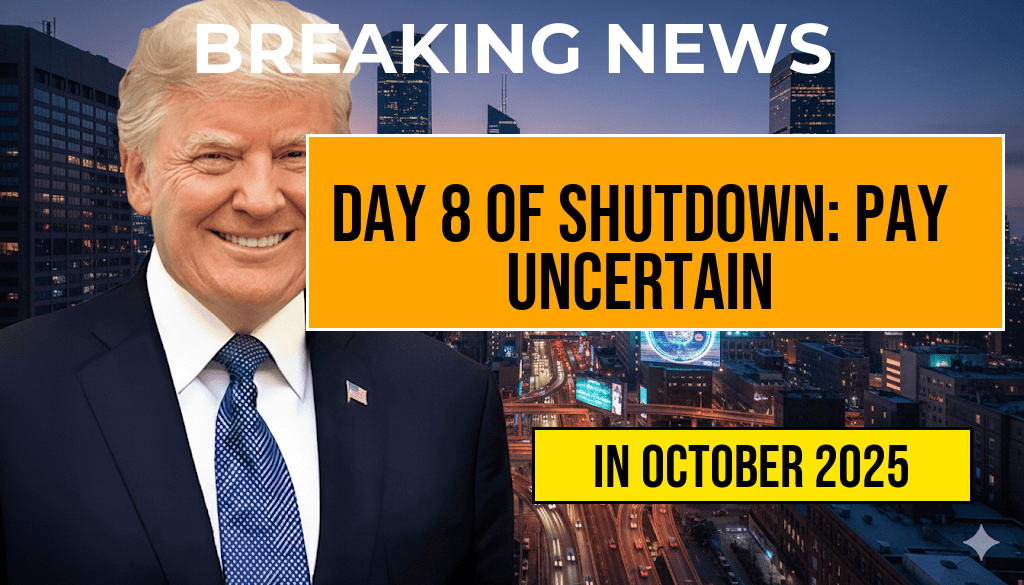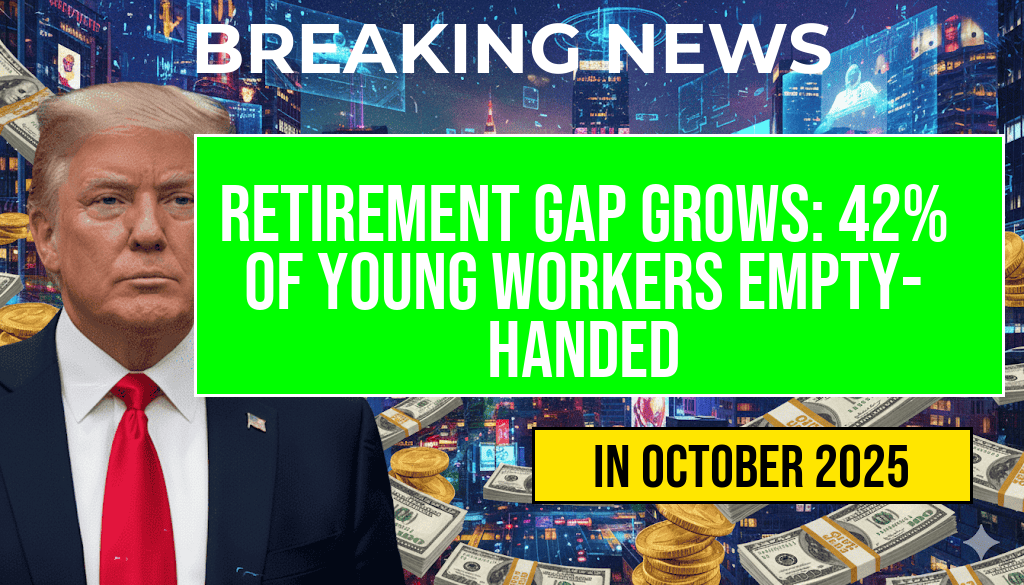As the eighth day of the ongoing federal government shutdown unfolds, thousands of federal employees face mounting uncertainty over their paychecks. With negotiations between congressional leaders and the administration at an impasse, many workers remain in limbo, uncertain whether they will receive full pay or see their wages withheld. The shutdown, which began when funding expired without a new appropriations bill, has disrupted a broad range of government operations, prompting questions about the immediate impact on federal employees’ financial stability and the broader implications for the economy. While some agencies have continued limited operations, the absence of funding has left many employees ineligible for pay, raising concerns over their ability to meet financial obligations amid ongoing economic pressures.
Current Status of the Shutdown and Federal Pay
As of Day 8, the shutdown continues to affect approximately 800,000 federal workers classified as essential personnel and approximately 420,000 who have been furloughed. The key point of contention remains whether Congress will pass emergency legislation or a funding bill to reopen the government, and how that legislation will address pay for those affected. According to official sources, federal employees classified as non-essential are currently on unpaid leave, while those deemed essential are required to work without immediate pay, though legislation to compensate them retroactively is pending.
Legal and Policy Framework for Federal Pay During Shutdowns
Historically, during government shutdowns, federal employees deemed non-essential are furloughed without pay until funding resumes. However, legislation has often included provisions to ensure they receive back pay once the shutdown ends. The federal government shutdown history demonstrates multiple instances where Congress has authorized back pay, though the process often leads to delays in compensation. For essential personnel working during shutdowns, compensation is typically guaranteed, but the timing of paychecks can vary, leading to financial hardship for many.
Impact on Federal Employees and Their Families
| Category | Number | Impact |
|---|---|---|
| Furloughed Employees | Approximately 420,000 | Laid off without pay; unable to meet financial commitments |
| Essential Employees | About 800,000 | Work without pay; concern over delayed compensation |
| Contractors | Varies | Potential delays in payments and project disruptions |
For many federal workers, the inability to access their regular income has intensified financial stress. Some employees have reported difficulty paying rent, covering utility bills, or funding childcare. The economic toll extends beyond individual households, potentially dampening local economies reliant on federal payroll spending.
Potential Legislative Solutions and Outlook
Several lawmakers have expressed intentions to pass legislation to resolve the shutdown swiftly, including measures to provide back pay and ensure continuity of government services. However, partisan disagreements over policy priorities continue to delay progress. The Biden administration has reiterated its commitment to working with Congress to reopen the government, emphasizing the importance of protecting federal workers from prolonged financial hardship.
Analysts warn that if the shutdown persists beyond the immediate future, the risk of lasting economic repercussions increases. Small businesses that contract with government agencies, as well as contractors awaiting payments, face mounting uncertainty. The federal budget process remains a critical factor in determining how and when funding will be restored.
Broader Implications and Future Steps
Economic and Political Consequences
The ongoing shutdown underscores the fragile nature of federal funding processes and highlights the political divisions influencing budget negotiations. The disruption impacts not only federal employees but also services relied upon by millions of Americans, including social security, national parks, and regulatory agencies. Economists warn that prolonged shutdowns can slow economic growth, reduce consumer confidence, and increase volatility in financial markets.
What Federal Employees Can Do
- Review official guidance from their agency regarding pay and leave policies.
- Explore options for emergency financial assistance through community resources or federal employee associations.
- Stay informed about legislative developments through official government channels and trusted news sources.
Resources for Affected Workers
Federal employees seeking assistance can consult the Office of Personnel Management website for updates and support options. Additionally, advocacy groups are providing financial counseling and emergency grant programs to help employees manage the immediate crisis.
As negotiations continue, the question remains whether Congress will pass a funding measure that includes provisions to compensate those impacted. The coming days will be critical in determining if the government can resume full operations and ensure that federal workers are paid promptly for their service.
Frequently Asked Questions
Will federal employees receive their full pay on Day 8 of the government shutdown?
Currently, federal employees are facing uncertainty regarding their pay. While some may receive partial or no pay, the situation depends on government decisions and potential congressional action.
How long can federal employees go without pay during the shutdown?
The duration of the shutdown impacts federal employees differently. Some may experience cash flow issues after just a few days, while others might be protected temporarily if funding is restored.
Are there any government programs providing financial assistance to affected employees?
Most federal employees affected by the shutdown are not eligible for emergency aid through government programs, but some state or local resources or emergency loans might be available to help manage financial hardship.
What are the implications of the government shutdown on essential services and employees?
During the shutdown, essential employees continue working to maintain critical functions, but they may face delayed paychecks. Non-essential employees are typically furloughed without pay until the shutdown ends.
What actions are being taken to resolve the government shutdown and ensure pay for federal workers?
Lawmakers are working to pass funding bills or continuing resolutions to restore government funding and ensure pay for all federal employees. The outcome depends on congressional negotiations and political agreements.






